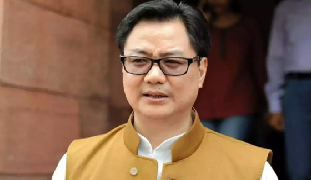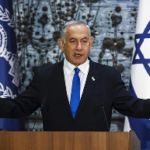Union Law Minister Kiren Rijiju hit out at the opposition for supporting the controversial BBC documentary critical of Prime Minister Narendra Modi and said that some people in India consider “BBC above the Supreme Court of India”.
The Centre has reportedly issued directions for blocking Twitter posts and YouTube videos sharing links to the BBC documentary “India: The Modi Question”.
The two-part BBC documentary reportedly investigated certain aspects relating to the 2002 Gujarat riots when Prime Minister Modi was the chief minister of the state.
Taking to Twitter, Rijiju said that India’s image cannot be disgraced by “malicious campaigns” launched inside or outside India.
“Minorities, or for that matter every community in India is moving ahead positively. India’s image cannot be disgraced by malicious campaigns launched inside or outside India. PM @narendramodi Ji’s voice is the voice of 1.4 billion Indians,” he said in a tweet.
“Some people in India still haven’t gotten over the colonial intoxication. They consider BBC above the Supreme Court of India and lower the country’s dignity and image to any extent to please their moral masters. Anyway, there is no better hope from these tukde tukde gang members whose only aim is to weaken the might of India,” he added.
The documentary has evoked sharp reactions from the opposition leaders.
TMC MP Mahua Moitra on Saturday hit out at the BJP-led Centre over its reported move against the BBC documentary and said that the “courtiers of the world’s largest democracy are insecure”.
“Govt on war footing to ensure no one in India can watch a mere @BBC show. Shame that the emperor & courtiers of the world’s largest democracy are so insecure,” she tweeted.
Earlier, the Ministry of External Affairs had described the BBC documentary as a “propaganda piece” that lacked objectivity and reflected a colonial mindset.
“Let me just make it very clear that we think this is a propaganda piece designed to push a particular discredited narrative. The bias, the lack of objectivity, and frankly a continuing colonial mindset, are blatantly visible,” External Affairs Ministry spokesman Arindam Bagchi had said on Thursday responding to questions on the documentary.



